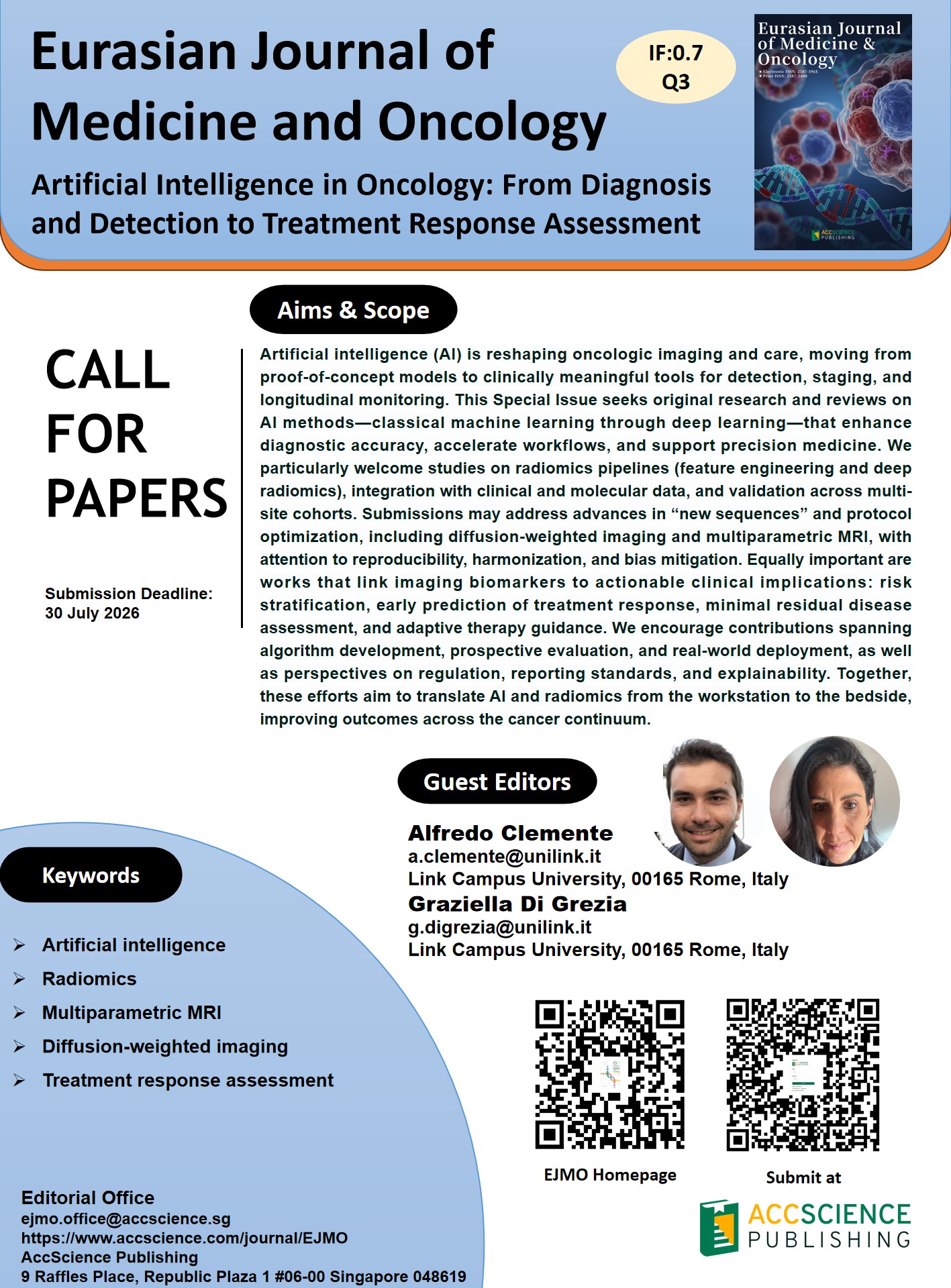
Artificial intelligence (AI) is reshaping oncologic imaging and care, moving from proof-of-concept models to clinically meaningful tools for detection, staging, and longitudinal monitoring. This Special Issue seeks original research and reviews on AI methods—classical machine learning through deep learning—that enhance diagnostic accuracy, accelerate workflows, and support precision medicine. We particularly welcome studies on radiomics pipelines (feature engineering and deep radiomics), integration with clinical and molecular data, and validation across multi-site cohorts. Submissions may address advances in “new sequences” and protocol optimization, including diffusion-weighted imaging and multiparametric MRI, with attention to reproducibility, harmonization, and bias mitigation. Equally important are works that link imaging biomarkers to actionable clinical implications: risk stratification, early prediction of treatment response, minimal residual disease assessment, and adaptive therapy guidance. We encourage contributions spanning algorithm development, prospective evaluation, and real-world deployment, as well as perspectives on regulation, reporting standards, and explainability. Together, these efforts aim to translate AI and radiomics from the workstation to the bedside, improving outcomes across the cancer continuum.



